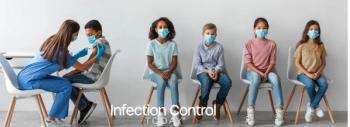
Webinar Recap: COVID-19 As Seen by Those on the Frontlines
Navigating shifting guidelines and recommendations about COVID-19 is a central challenge for clinicians on the frontlines of the COVID-19 pandemic response.
On Monday, April 13th, with Infection Control Today®andContagion® partnered with Physicians’ Education Resource® to host a live CME-certified webinar. The program offered a diverse look at just what it’s like on the frontlines of the COVID-19 pandemic-from the ICU to the lab.
The discussion was moderated by
As the US Centers for Disease Control and Prevention and World Health Organization guidance changes, infection prevention efforts have become complicated. Each state in the United States is facing a different and unique challenge.
Learning as we go requires being communicative and empathetic, Popescu explained.
Cawcutt also emphasized the theme of navigating ever-changing information. In particular, she highlighted debates about mechanisms of COVID-19 transmission. This focused on the complexities of aerosolization and droplet versus airborne personal protective equipment precautions.
Cawcutt added that the shortage of ventilators and sedative medications used during intubation points to concerns about early guidance which suggested ICU patients be placed on a ventilator as soon as possible. Cawcutt also suggested that noninvasive ventilation should be explored further as an option.
Following Cawcutt, there was a presentation on hydroxychloroquine by Matthew F. Pullen, MD, infectious diseases and international medicine physician at the University of Minnesota.
Pullen is part of a group conducting a randomized control trial of hydroxychloroquine as a post-exposure preventative measure for COVID-19. After the original Severe Acute Respiratory Syndrome outbreak, hydroxychloroquine was found useful against SARS-CoV-1 in vitro.
There are only, so far, small studies presenting human data. Pullen emphasized the need to operate based on evidence, bringing up his ongoing trial.
The last presentation was by Mohini Lata, RN, MSN, registered nurse at Kaiser Permanente in the ICU.
Lata’s presentation emphasized that frontline health care workers are the heart of a health care organization. Patients don’t have families visiting and patients are scared and feel alone, Lata explained. Because of this, it helps to remember that a patient is someone’s loved one and treat them accordingly.
The panic on social media that treats COVID-19 as a death sentence is counterproductive to these efforts, Lata pointed out.
If a patient loses the battle in their mind, that’s half of the clinical battle lost, she said. Reassuring patients and families is vital to patients maintaining the energy needed to overcome their illness.
The presentations were followed by a Q&A from the clinician audience.
This article first appeared in
Newsletter
Stay prepared and protected with Infection Control Today's newsletter, delivering essential updates, best practices, and expert insights for infection preventionists.




